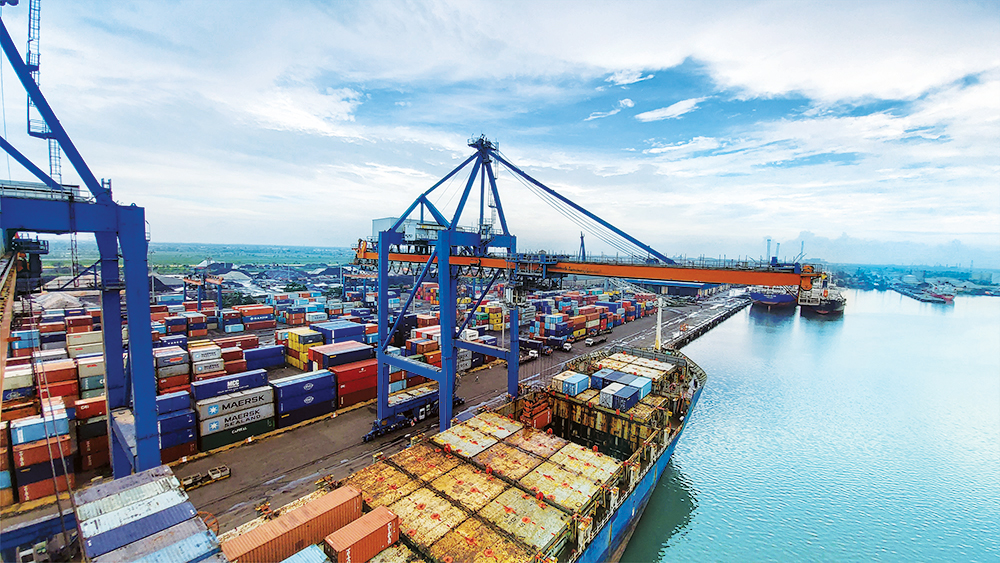While the Indian port sector has over the past few years been poised at a major change with increasing privatisation, minor ports growing faster than the major ports, increasing mechanisation and automation, the need for a new Central regulatory framework was desirable keeping more in tune with the changing times.
Accordingly, the Major Port Authorities Bill, 2020 was passed by Lok Sabha on 23 September 2020. The Bill seeks to provide greater autonomy to the Major ports of India. This autonomy will empower the Ports to take individual decisions in the ever-competitive market. It also seeks to facilitate other govt. initiatives like the Sagarmala programme, lowering of logistics cost etc by providing effective legislation. It will replace the Major Port Trusts Act, 1963.
Key features of the Bill include:
- 01. The Bill Section
The Bill is concise with only 76 sections instead of the earlier 134 sections.
- 02. Major Port Authorities Board
The Bill provides for formation of a Board of Major Port Authority for each major port. These Boards will replace the existing Port Trusts. The Board will comprise of a Chairperson and a deputy Chairperson, both of whom will be appointed by the central government. Further, it will include one member each from
- The respective State Governments
- The Railways Ministry
- The Defence Ministry
- The Customs Department
- Ministry of Shipping
The Board will also include two to four independent members, and two members representing the interests of the employees of the Major Port Authority.
- 03. Powers Of The Board
The Bill allows the Board to use its land, property, assets and funds as deemed fit for the development of the major port. The Board can create a Master Plan independent of any local/State Govt regulations/Authority. The Board can enter into contracts and make rules and regulations for the operation, development and planning of the Ports. Currently, the Tariff Authority for Major Ports, established under the 1963 Act, fixes the scale of rates for assets and services available at ports. Under the Bill, the Board or committees appointed by the Board will determine these rates. They may determine rates for:
- Services that will be performed at ports
- The access to and usage of the port assets, and
- Different classes of goods and vessels, among others.
Such fixing of rates will not be with retrospective effect and must be consistent with the provisions of the Competition Act, 2002, or any other laws in force, subject to certain conditions.
- 04. Financial Powers Of The Board
Under the 1963 Act, the Board has to seek prior sanction of the central government to raise any loan. Under the Bill, to meet its capital and working expenditure requirements, the Board may raise loans from any:
- Scheduled bank or financial institution within India, or
- Any financial institution outside India that is compliant with all the laws.
However, for loans above 50% of its capital reserves, the Board will require prior sanction of the central government.
- 05. Public Private Partnership (PPP) Projects
For PPP projects, the Board may fix the tariff for the initial bidding purposes. The concessionaire will be free to fix the actual tariffs based on market conditions, and other conditions as may be notified. The revenue share in such projects will be on the basis of the specific concession agreement.
- 06. Adjudicatory Board
The Bill, further, provides for the constitution of an Adjudicatory Board by the central government. Functions of the Adjudicatory Board will include:
- Certain functions being carried out by the Tariff Authority for Major Ports, other than tariff setting
- Adjudicating on disputes or claims related to rights and obligations of major ports and PPP concessionaires
- Reviewing stressed PPP projects.
An important feature of the Bill is the proposal to abolish TAMP and empower Major Ports and the PPP Operators to fix market-based tariffs. This will give flexibility to PPP Operators in levying tariffs. The experience under a regulatory regime has shown that many of the PPP projects have suffered from lack of viability and are on the verge of becoming stressed projects. In the absence of a level playing field, PPP Operators are also unable to compete with private ports which enjoy full tariff freedom as a result of which lot of cargo of Major Ports is getting diverted to private ports. Giving freedom to PPP Operators to charge prices according to commercially and financially sound principles is a prerequisite for the success of privatization policy.
Another important feature is setting of an Adjudicatory Board which, inter alia, will have powers to appraise, review the stressed PPP projects and to suggest measures to revive such projects. This mechanism will provide a judicial forum for finding resolution to such issues.
Unfortunately, the composition of the Board does not specifically include any representation to vital stakeholders and professionals from the Trade, Shipping Lines and Terminal Operators. The Bill, probably, also should have provided for an enabling provision for corporatisation of Major Ports which is an essential step in brining in complete professionalism in managing the Ports to enable them to compete effectively with Non-Major Ports and Foreign Ports.
Having said that, the Bill is a welcome step in the right direction and will bring in faster decision making, more professionalism and greater autonomy to the Port sector in India, leading to greater transparency, lower transaction costs and quality infrastructure.
